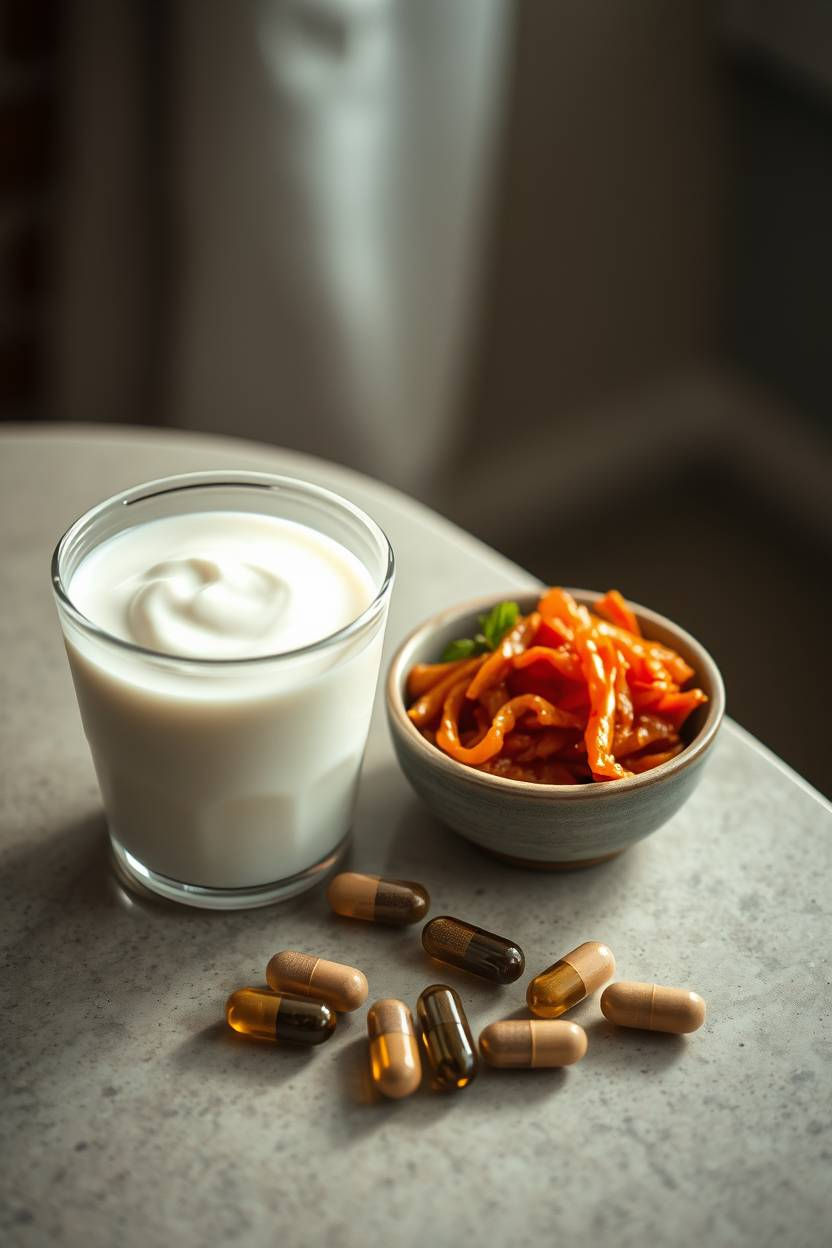🍽️ Still Bloated After Eating? How to Gently Heal Your Gut After Anorexia or Bulimia (Deep Dive)
- The Wellness Edit

- Jul 8, 2025
- 3 min read

😖 You’re Nourishing Your Body—So Why Does It Still Hurt?
Recovery is transformative but it can leave your gut compromised. Up to 98% of individuals with eating disorders report functional GI issues like bloating, gas, and delayed gastric emptying . As Abbey Sharp RD points out, under-eating actually slows digestion, contributing to IBS and post-meal discomfort
This chronic digestive distress is rooted in:
Delayed gastric emptying (gastroparesis)
Intestinal dysmotility & visceral hypersensitivity
Microbiome imbalance from malnutrition and purging
Let’s walk through a holistic recovery roadmap to rebuild your gut with compassion and science-backed strategies.
🧫 1. Probiotics & Prebiotics: Reseeding Your Inner Ecosystem

Why It Matters
Repopulating your gut is essential—studies show probiotic therapy can help restore balance, ease bloating, and support digestion.
How to Prepare
Choose a multi-strain, refrigerated probiotic (≥10 billion CFUs).
Add naturally fermented foods: kefir, sauerkraut, miso.
How to Use
Take probiotic capsules in the morning on an empty stomach.
Eat fermented foods daily.
Support this with prebiotic foods like onions and bananas.
✅ Tip: Start slow to avoid bloating—your gut is recovering and needs time.
💪 2. Collagen & Bone Broth: Re-Seal and Soften Your Gut Lining

Why It Matters
Your gut lining may be compromised by disordered eating. Collagen peptides help rebuild the intestinal barrier, easing bloating and pain.
How to Prepare
Use grass-fed collagen or gelatin powder.
Prepare bone broth in batches with marrow bones and herbs.
How to Use
Add 1–2 scoops of collagen to smoothies or warm cacao drinks.
Sip bone broth 2–3 times per week, especially before bed.
✅ Tip: This supports leaky gut repair and gentle protein nourishment.
🍃 3. Gentle Digestive Herbs: Calming Cravings & Cramping

Benefits from Research
Peppermint, ginger, and chamomile have clinical support for reducing bloating, nausea, cramps, and anxiety-induced gut issues.
How to Prepare
Use single or blended herbal teas from trusted sources.
How to Use
Drink ginger or chamomile before meals.
Sip peppermint after meals to soothe spasms.
✅ Tip: Keep a small tea routine—easy rituals help reduce stress around eating and digestion.
🧘 4. Rebuilding Gut Motility and the Mind-Body Connection

Eating disorders interrupt normal gut motility. To restore flow and ease visceral hypersensitivity:
Techniques Supported by Expert Opinion
Abdominal massage: clockwise strokes to improve transit
Deep belly breathing: activates vagus nerve to stimulate digestion
Divided feeding: smaller, regular meals rebuild stomach function gently
How to Use
Massage belly 5 minutes before meals.
Practice breathing techniques before eating.
Eat 5–6 small meals per day instead of 3 large ones.
✅ Tip: Healing is about small, consistent steps—track your improvements and adjust.
🧭 5. Move Toward Food Freedom, Not Restriction

Ironically, under-eating and erratic eating can worsen bloating. Abbey Sharp highlights that raising intake—even slightly—promotes gut motility and microbial diversity.
How to Prepare
Build simple, nourishing meals with carbs, fats, and proteins.
Use a gentle journal to track appetite, reactions, and progress.
How to Use
Repeat a gentle meal plan 3–5 days: add fermented sides, collagen drinks, hydration.
Increase variety gradually, honoring body signals.
✅ Tip: Focus on what memory your gut is forming—safety, rhythm, nourishment, not restriction.
🔁 6. 3-Day Gut Healing Reset Plan (Your Toolkit in Action)

Day 1:
Smoothie with collagen + probiotic
Ginger tea after lunch
Gentle abdominal massage and calm herb tea before bed
Day 2:
Fermented yogurt bowl + breathing exercises
Bone broth cup + peppermint tea after dinner
Full body hydration and mindful eating
Day 3:
Light protein + greens breakfast
Repeat herbal teas + food journaling
End with soothing chamomile or meditation before sleep
💬 Final Reflection: Your Gut Can Heal with Patience & Wisdom
You endured profound stress—your gut didn’t forget. But your body can come back stronger. With gentle nourishment, microbiome rebuilding, mind-body practices, and compassionate routines, you’re not just digesting—you’re recovering.
👇 Comment “GUT HEAL” for a free printable Digestive Tracker + Healing Meal Guide designed just for your recovery journey.
.png)



Comments